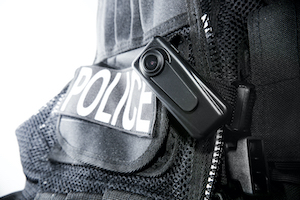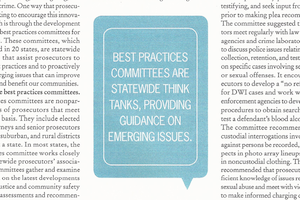Police Worn Cameras: What Prosecutors Need to Know

As police departments across the United States embrace the use of police body-worn cameras, it is imperative that prosecutors be involved in the process as early as possible. The cameras will inevitably capture a great deal of evidentiary material that will be used in every type of criminal prosecution. Thus, systems and policies must be developed to ensure that this evidence is properly captured and delivered to the prosecutor in a timely and usable way, and that prosecutors have the resources to view, store and redact the recordings.
Read More






